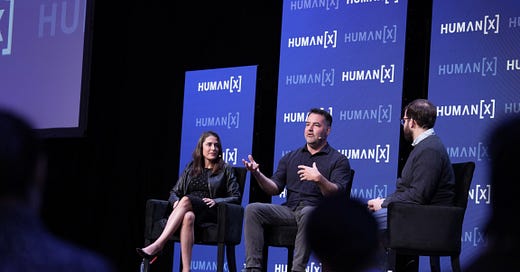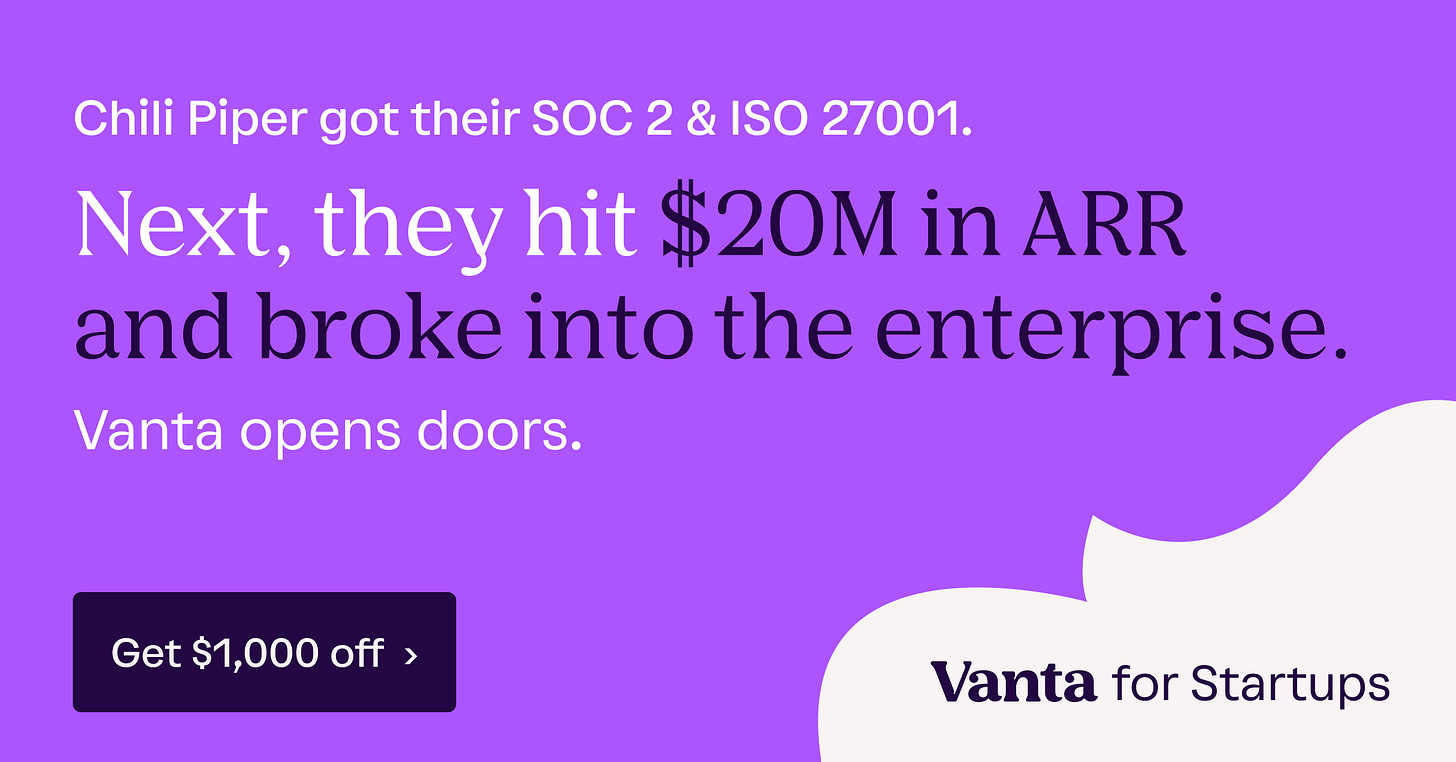Market Turmoil Collides With AI Progress
Plus, a tale of two conferences as AI VCs ditch Austin for Las Vegas
The Main Item
AI’s Promise Shines as the World Order Shakes
The world is ending and beginning.
The stock market is unraveling. The Trump regime is destabilizing the global economic system with arbitrary tariffs and general chaos while bullying our friends, reneging on promises, and likely triggering a recession for its trouble.
In the tech world, there were spooky echoes of these dark tidings. The upcoming test-case IPO for the AI industry, CoreWeave, is a bit atypical, what with so much of its buying and selling attributable to Nvidia, and the founders’ cashing out big ahead of time. The wheels are coming off at Tesla, bringing an unsightly intervention by President Trump. Even Apple, a company run so well for so long, is now rightfully being accused by its most esteemed fanboy of selling vaporware.
On the other hand, coming back from the HumanX conference in Las Vegas this week, it’s hard not to feel like we are in a world historic moment. Startup CEOs who aren’t building coding companies themselves seem genuinely convinced that the latest onslaught of coding tools — whether they come from Anthropic, Cursor, Codeium, Vercel, Replit or the many other companies diving into the space — are making it easier to build software than ever before.
Andrej Karpathy’s vibe coding is the phrase on everyone’s lips. Private technology companies are hitting record valuations faster than ever before. Moveworks announced a $2.85 billion sale to ServiceNow this week, putting one of the most successful agent providers into a company with an extensive Fortune 500 customer base. Many startups are growing revenue quickly with minimal overhead. This isn’t food delivery or ride-hailing, where Uber and Didi burned billions to compete for a low-margin transportation business. Outside of a handful of foundation model companies, lean startups are in vogue.
You have to wonder, is this mania about to hit the wall of broader economic realities, like in 2008? Can AI’s relentless march towards AGI continue unimpeded with a madman president determined to burn down the institutions of government?
I can’t pretend to answer that question. But this feels like more than Silicon Valley companies building something new and cool. It’s as if they’ve received advance word on the look and feel of a fundamentally different kind of business world that’s about to arrive.
The old way of doing this is dead, and word is just reaching the ears of men. Coding tools and reasoning models are at this moment allowing companies to build at a pace that we’ve never seen before. The only moat is the speed at which you adapt to the new and there’s no one better at that than America’s upstart technology companies. We’re in a land grab moment while the economy and the global order unravel.
I spoke on four panels at HumanX: moderating a conversation with Poolside’s CEO and its investor, talking mental health startups with Vinod Khosla and Limbic, weighing in on the future of communications and media, and fielding questions about Newcomer and the future of journalism. I chatted with founders at Moveworks, Synthesia, Nfinite, Abornmal Security, Precision Neuroscience, Airtable, Writer, Baseten, Fireworks, Neo4j, Vanta, and more. I sat down with Mike Krieger, the Instagram and Artifact founder and now the CPO of Anthropic. I had lunch with the persuasive Guillermo Rauch of Vercel and walked out under a spell, momentarily convinced that Vercel was about to disrupt every company from hyperscalers to infrastructure providers to product design companies like Figma.
Oh and I got wiped out playing poker, going all-in with pocket kings pre-flop against what turned out to be pocket aces held by the wildest better at the table. He offered to wipe away my loss for a newsletter ad, but I declined.
Coming out of an AI conference, I want to put what we’ve got cooking in AI on your radar. We’re excited to update everyone soon on what we’ve got in store with the Cerebral Valley AI Summit this year. I’ll tell you now that if you’re an AI founder, you should pencil in June 25 in London and November 12 in San Francisco.
Here are a few more takeaways from HumanX:
Coding tools are truly changing the game. I spoke with Evan Reiser, the CEO of Abnormal Security, who argues convincingly that these tools are going to drastically alter the companies’ engineering pipelines even for sensitive security software, opening the possibility of building customer-specific security applications and putting pressure on every company to deliver more more quickly.
Companies like Moveworks and Writer are getting much more sophisticated about their approach to autonomous agents and what enterprise adoption will require. Companies like Superhuman are bringing models directly into their products, allowing for nuanced filters and complex conditional tasks.
Still, the agent hype feels like it’s a cycle ahead of reality — few if any agents are actually trustworthy enough to be relied upon just yet. It’s only now that a lot of companies are successfully implementing the type of straightforward AI features that people were excited about a year ago.
Outside of coding, customer support, and some enterprise agentic use cases, it feels like the average AI-interested person is still mostly using a chatbot. This week Sam Altman shared what he considered great writing from OpenAI that did not seem all that impressive to me.
Everybody is on a collision course and many infrastructure businesses still have access to powerful GPUs as a key differentiator.
AI companies are ruled by the release of new models, watching each new update closely and racing to find out how they can implement the latest improvements or find the same capabilities in open source models.
Security, health, and fintech feel buzzy while SaaS and consumer applications feel more subdued.
— Eric
Open doors to next-level growth with Vanta
As a startup founder, finding product-market fit is your top priority.
But landing bigger customers requires SOC 2 or ISO 27001 compliance—a time-consuming process that pulls you away from building and shipping.
That’s where Vanta comes in.
By automating up to 90% of the work needed for SOC 2, ISO 27001, HIPAA, and more, Vanta gets you compliant fast—opening doors to next-level growth opportunities.
Over 10,000 companies like Atlassian, Factory, and Chili Piper streamline compliance with Vanta’s automation and trusted network of security experts. Whether you’re closing your first deal or gearing up for growth, Vanta makes compliance easy.
Learn more and claim a special offer of $1,000 off Vanta.
Austin Dispatch
A Vibe Shift in Austin as Consumer Tech is Overshadowed by AI
The annual South By Southwest tech/film/music conference in Austin has an illustrious history as a cradle of the consumer internet, and a destination for Silicon Valley VCs. This year, though, it felt decidedly more populated with big tech operators, along with founders, while a lot of AI-focused VCs opted for HumanX in Las Vegas.
Hopping from panels to parties, a lot of people were excited about marketing and consumer tech—but not so many were keen on investing in it. Headliners for the conference included the food influencer Keith Lee and game designer Hideo Kojima, as well as the CEOs of Qualcomm and IBM.
AI data governance startup Polygraf AI won the pitch contest, but there was a notable lack of Bay Area-based companies in the batch of winners (no disrespect intended from this Austin native). There was nothing like Twitter’s SXSW breakout in 2007, or Meerkat’s in 2015, when consumer apps were the hottest category.
Quantum computing leaders showed up in droves, with IBM’s Arvind Krishna talking up his plan to build a national quantum algorithm center in Illinois with Governor JB Pritzker on stage. He touted the minimal amount of energy needed compared with AI data centers, saying it used “100th of the energy.”
Arm CEO Rene Haas, riding the success of the company’s 2023 IPO, was bullish on growth: more and more AI running on edge devices will be good for Arm, and it’s indifferent to who wins the model race.
Vibe coding still had its night to shine at the AI house party hosted by Glean and Codeium, with a line around the block in the busy Rainey Street bar district. Employees at both companies were touting their customer interest - Glean hit $100 million in ARR last year, and while Codeium’s run-rate is far lower, the startup is in talks to raise a fresh round of funding at a $2.85 billion valuation. It can’t be a tech festival in 2025 without some AI hype.
— Madeline







